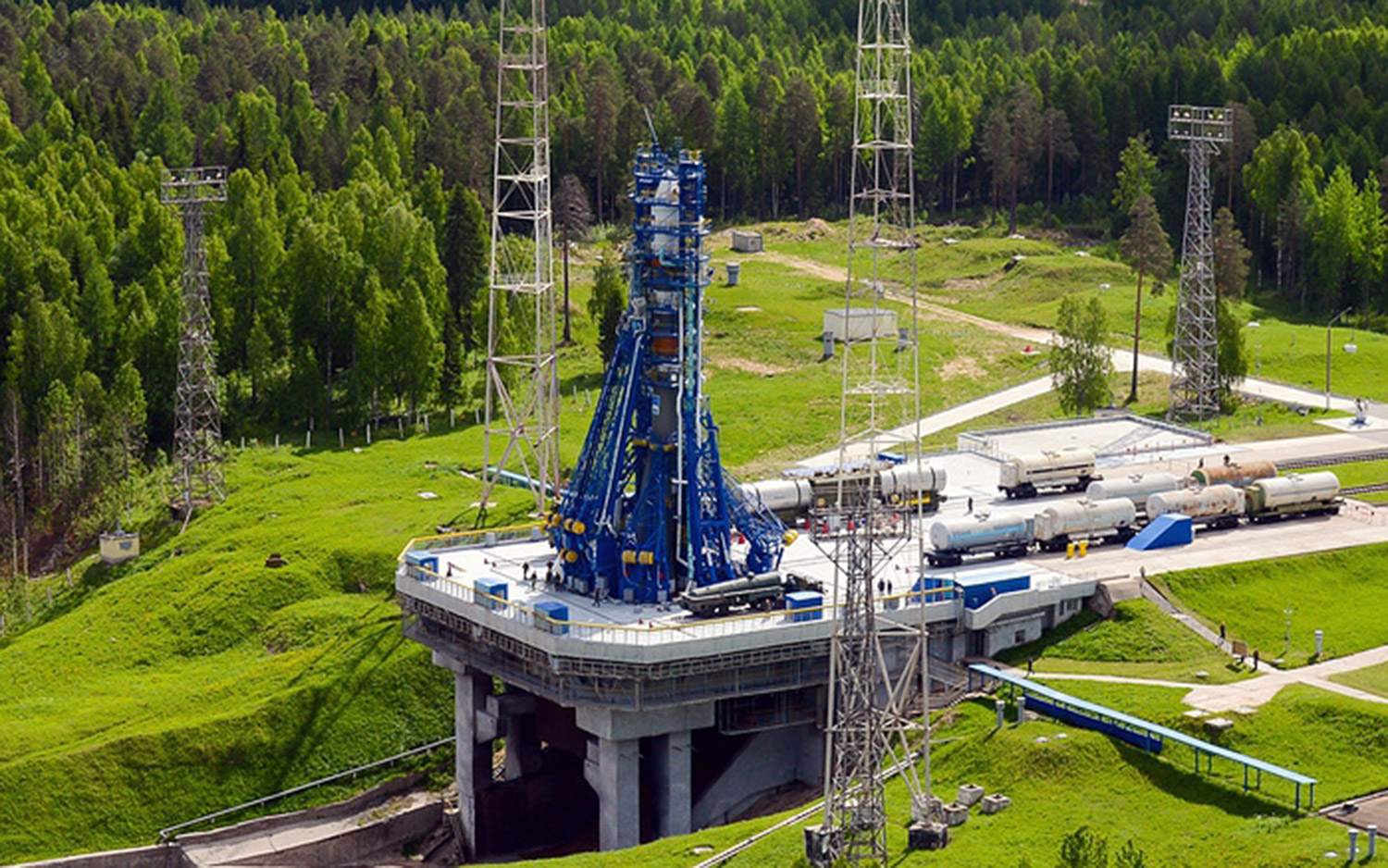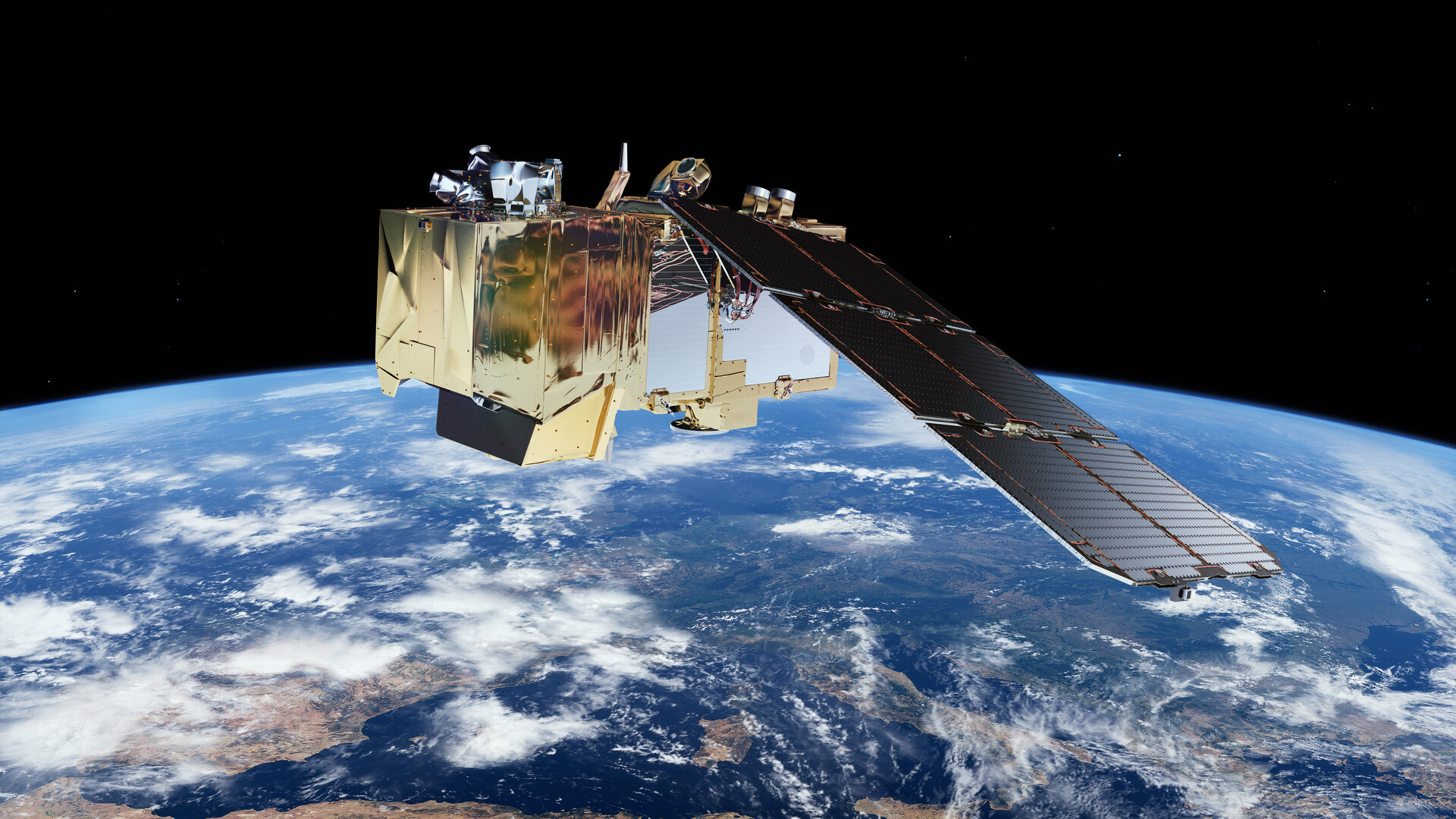Russia launches military communications satellite: reports

Breaking space news, the latest updates on rocket launches, skywatching events and more!
You are now subscribed
Your newsletter sign-up was successful
Want to add more newsletters?

Delivered daily
Daily Newsletter
Breaking space news, the latest updates on rocket launches, skywatching events and more!

Once a month
Watch This Space
Sign up to our monthly entertainment newsletter to keep up with all our coverage of the latest sci-fi and space movies, tv shows, games and books.

Once a week
Night Sky This Week
Discover this week's must-see night sky events, moon phases, and stunning astrophotos. Sign up for our skywatching newsletter and explore the universe with us!

Twice a month
Strange New Words
Space.com's Sci-Fi Reader's Club. Read a sci-fi short story every month and join a virtual community of fellow science fiction fans!
Russia just lofted a military communications satellite, according to media reports.
A Soyuz rocket topped with a spacecraft called Meridian-M launched today (March 22) from Plesetsk Cosmodrome in northwestern Russia, rising off the pad at 8:48 a.m. EDT (1248 GMT), according to the state-owned news agency Ria Novosti, which cited Russian military officials.
"Satellites of the 'Meridian' series provide communication between sea vessels and ice reconnaissance aircraft in the area of the Northern Sea Route with coastal and ground stations," Ria Novosti wrote (in Russian; translation provided by Google). "Also, the devices expand the capabilities of satellite communication stations in the northern regions of Siberia and the Far East."
Related: Russia's invasion of Ukraine in satellite photos
Live updates: Ukraine invasion's impacts on space exploration
Today's launch was the second that Russia has performed since invading Ukraine on Feb. 24. On March 18, a Soyuz launched from the Russia-run Baikonur Cosmodrome in Kazakhstan, sending cosmonauts Oleg Artemyev, Denis Matveev and Sergey Korsakov to the International Space Station.
The trio entered the orbiting lab a few hours later wearing yellow-and-blue flight suits, the national colors of Ukraine. This prompted some people to speculate that the cosmonauts may have been expressing support for the invaded nation. Russian space officials have dismissed that interpretation, however.
There was supposed to be another liftoff from Baikonur this month as well; a Soyuz operated by French company Arianespace was scheduled to launch 36 internet satellites for the London-based company OneWeb on March 4.
Breaking space news, the latest updates on rocket launches, skywatching events and more!
But Russia's federal space agency, Roscosmos, demanded that OneWeb guarantee that its satellites wouldn't be used for military purposes and that the United Kingdom divest itself from OneWeb, which it helped buy out of bankruptcy in 2020. Those demands were not met, and the Soyuz was taken off the pad shortly before liftoff.
OneWeb has already found another way to get its satellites up, however. On Monday (March 21), the company announced that it has signed a launch deal with SpaceX.
Mike Wall is the author of "Out There" (Grand Central Publishing, 2018; illustrated by Karl Tate), a book about the search for alien life. Follow him on Twitter @michaeldwall. Follow us on Twitter @Spacedotcom or on Facebook.

Michael Wall is a Senior Space Writer with Space.com and joined the team in 2010. He primarily covers exoplanets, spaceflight and military space, but has been known to dabble in the space art beat. His book about the search for alien life, "Out There," was published on Nov. 13, 2018. Before becoming a science writer, Michael worked as a herpetologist and wildlife biologist. He has a Ph.D. in evolutionary biology from the University of Sydney, Australia, a bachelor's degree from the University of Arizona, and a graduate certificate in science writing from the University of California, Santa Cruz. To find out what his latest project is, you can follow Michael on Twitter.
